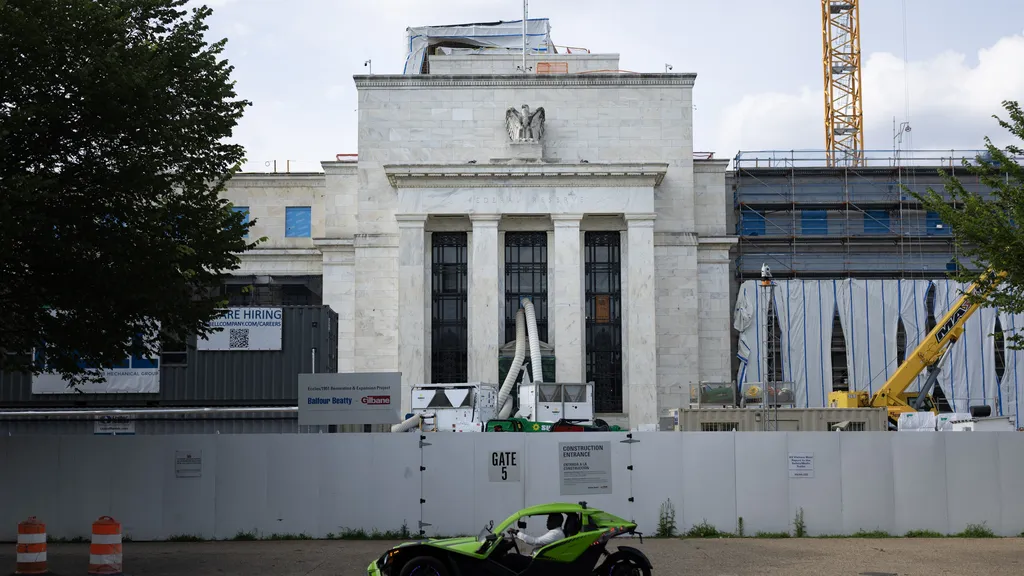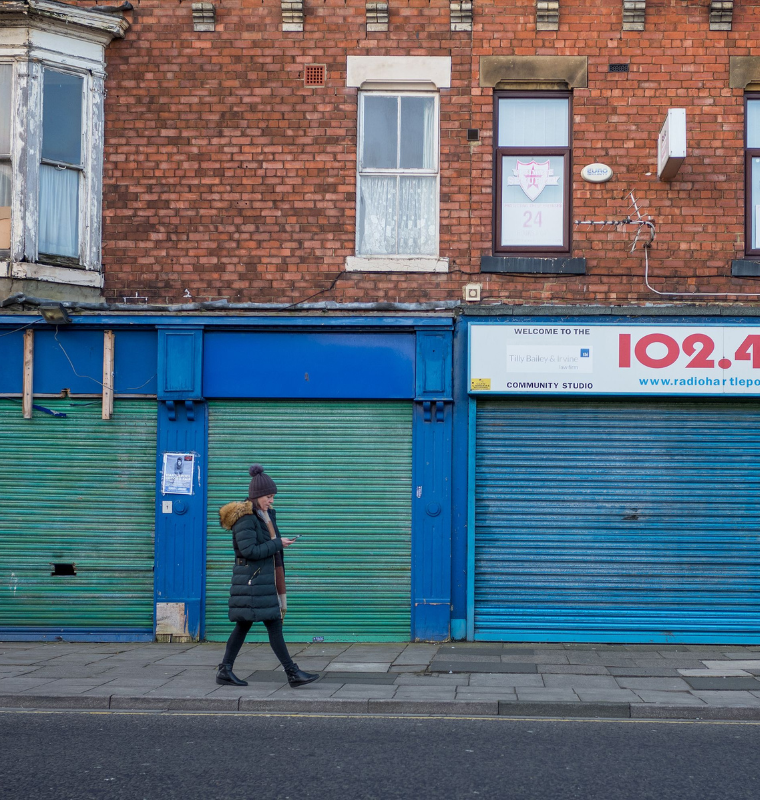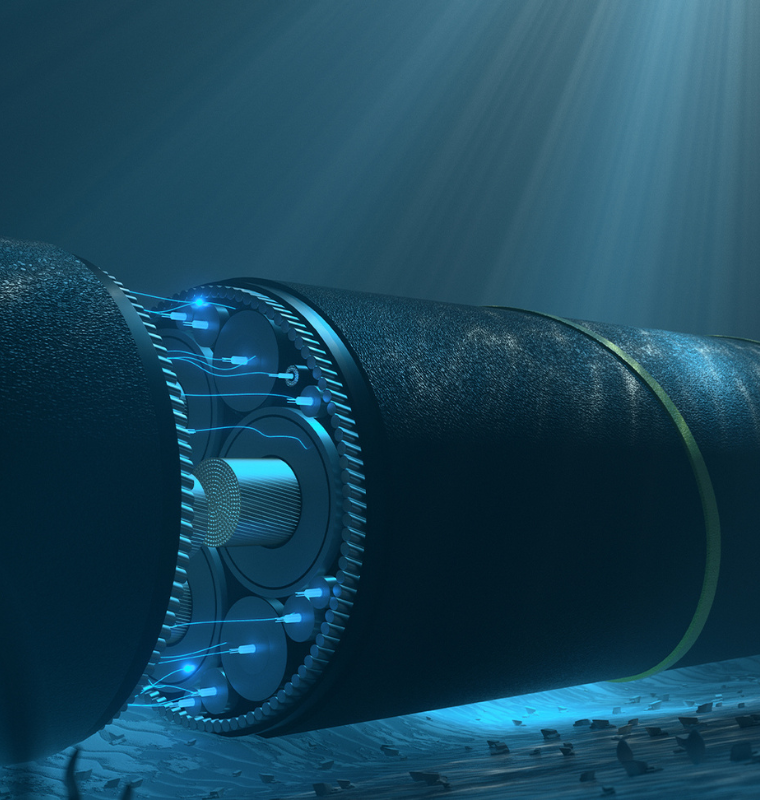Powell Defends Fed Headquarters Renovation Amid White House Scrutiny
By
Last updated:
July 18, 2025
First Published:
July 18, 2025

Photo: Axios
Powell Pushes Back on White House Accusations Over Fed Renovation
Federal Reserve Chairman Jerome Powell on Thursday formally addressed a heated inquiry from the White House concerning the ongoing renovation of the Fed’s Washington, D.C. headquarters. The letter, sent by Russell Vought, director of the Office of Management and Budget (OMB) and a key ally of President Donald Trump, questioned the ballooning costs of the project and accused Powell of prioritizing luxury upgrades over fiscal discipline.
The exchange comes amid a broader effort by the Trump administration to apply pressure on Powell, as the central bank continues to hold firm on interest rates despite repeated calls from the president for cuts.
The Letter That Sparked the Debate
On July 10, Vought issued a public letter to Powell demanding answers about the renovation, which has exceeded its original budget. He accused Powell of “gross mismanagement” of the Federal Reserve System and alleged that the project included extravagant features such as private elevators, rooftop gardens, and VIP dining areas—claims that Powell categorically denied.
Vought further suggested Powell may have misled Congress during testimony about the renovation in June, adding, “Instead of attempting to right the Fed’s fiscal ship, you have plowed ahead with an ostentatious overhaul of your headquarters.”
The letter gave Powell seven days to respond.
Powell’s Response: Transparency and Clarification
In his reply, Powell maintained a professional tone and avoided engaging with Vought’s more personal attacks. He explained that cost overruns were the result of evolving building code requirements, aging infrastructure, and long-term safety and energy efficiency upgrades. He emphasized that the renovation had been designed to support the Fed’s critical operations in a secure and modern facility.
To reinforce transparency, Powell directed the OMB and the public to a new section of the Federal Reserve’s website, where detailed project documents and budget updates have been published.
“The Board believes it is of the utmost importance to provide transparency for our decisions and to be accountable to the public,” Powell wrote in the letter.
Powell also addressed concerns over the project’s approval process, stating that while the Fed is not legally required to adhere to directives from the National Capital Planning Commission (NCPC), the central bank had voluntarily collaborated with the agency to ensure proper oversight and planning.
Political Pressures Mount as Trump Targets the Fed
Vought’s inquiry is widely seen as part of President Trump’s larger campaign to undermine Powell’s credibility and pressure him to resign. Trump has expressed growing frustration over the Fed’s refusal to lower interest rates, a move he believes would stimulate the economy ahead of the 2025 election.
Republican lawmakers have joined in, intensifying scrutiny. On the same day Powell issued his response, Rep. Anna Paulina Luna (R-FL) announced she would request a Justice Department investigation into whether Powell had given false testimony regarding the renovation.
Vought, not satisfied with Powell’s letter, announced he would conduct a site visit to the Fed headquarters to evaluate the renovation progress himself.
The Bigger Picture: Independence of the Central Bank
While Powell’s defense of the renovation is grounded in fiscal rationale and transparency, the larger issue remains the independence of the Federal Reserve. The renovation controversy is less about architectural upgrades and more about political leverage.
The Federal Reserve has long been insulated from direct political interference, but recent developments signal an intensifying clash between the White House and the central bank—at a time when the Fed’s policies have broad implications for inflation, employment, and financial markets.
Final Thoughts: A Renovation or a Flashpoint?
What began as a bureaucratic project to modernize an aging government facility has now become a symbol of the ongoing tension between economic policymakers and political leadership. While Powell has reaffirmed the Fed’s commitment to transparency and accountability, the political storm surrounding the renovation — and the broader fight over interest rate policy — is far from over.
As the 2025 election season heats up, expect the pressure on Powell and the Federal Reserve to only increase, with the headquarters renovation serving as a convenient, high-visibility flashpoint in a larger battle over monetary policy and institutional autonomy.
Popular articles
Subscribe to unlock premium content
Kylie Jenner’s $420M Beauty Empire Unravels: Inside the Stunning Fall of a Social Media Mogul

Britain’s Economic Decline: From Global Powerhouse to Financial Strain

Trapped by Perfection: How AI Beauty Filters Are Rewiring Our Faces—and Our Minds

Kylie Jenner’s $420M Beauty Empire Unravels: Inside the Stunning Fall of a Social Media Mogul

Britain’s Economic Decline: From Global Powerhouse to Financial Strain

Kylie Jenner’s $420M Beauty Empire Unravels: Inside the Stunning Fall of a Social Media Mogul









